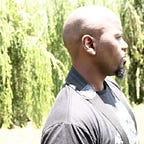Self-Made Men — According To Fred Douglas
“Self-made men,” said Fred Douglas In his lecture by the same name, “ are men who owe little or nothing to birth, relationship, friendly surroundings; to wealth inherited or to early approved means of education; who are what they are, without the aid of any of the favoring conditions by which other men usually rise in the world and achieve great results.”
Fred Douglas was born a slave, and tells in detail in his autobiography how he was repeatedly abused by his master as a boy. While a slave, however, he taught himself how to read and write in secret as it was prohibited for slaves to be literate.
However, he eventually escaped slavery as a young man and built himself up thereon to become a foremost speaker, thinker and reformer of his day.He summoned up from his soul something of a manly spirit, and he began to feel his chains less heavy.
His newfound freedom constantly presented him challenges beyond his reach, which motivated him to continuously improve himself and his circumstances. The key to advancement, he maintained, was hard work combined with a strong desire to succeed.
Inspired by his own writings, he helped end an institution that had lasted centuries and gave inspiration to millions of newly freed slaves as they began their struggle for equality in America.
He, and was accustomed to say that It is not luck that makes a man self-made, but considerable physical and mental effort and that the importance of hard work is a necessary means to achieve any notable success in life.
He remarked on one occasion that “there is nothing good, great or desirable that does not come from some kind of work,” and that success can be explained by only one word, “Work!” And that an ambitious man will naturally, through effort, climb the social ladder and improve his circumstances, whereas an unmotivated man will remain exactly where he is.
Thus, understanding the ground the former slave negro had to cover in order to get on equal footing with his white counterpart, Douglas stressed — even more so — the importance of a strong spirit in him. “If a man cannot help himself when provisions have been made for him,” he stated, well symphathising with the condition of a slave, yet pushing for tenacity, “why should anyone else help him? Once the negro is on an equal playing field and is in a position to help himself as well as others, leave him alone. For If he lives, well and good. If he dies, equally well and good. For If he is unable to stand upright on his own two feet, then let him fall. When a man falls, we should help him to his feet. Everyone needs help from time to time. But when he lies down, it is a waste of time to carry him — and quite bad for everyone if we encourage men to shirk their work by offering equal rewards for those who do and don’t put in effort.”
Give a man power and a field in which to employ it, and he must achieve something. He may not achieve and become everything he desires and dreams of, but he must achieve something.
Nature has given every man enough talent and chance to be reasonably successful in this one life. If we fall and stay down, our plight is completely our fault. We have either neglected to develop the abilities we were born with, or have been unable to develop any new ones. A strong spirit of self-reliance and efficacy is at the heart of all great achievements, for as Smiles put it:
“Whatever is done for the people takes away the incentive and need of doing things for themselves; and when men are exposed to over-guidance and over-government, the natural tendency is to make them relatively powerless.”
When men have necessity and dont act to remedy it, what good are they as men? Necessity, in Douglas’ opinion, is what drives men to act, but ease and luxury serve as roadblocks to action, and an inactive man can never become a self-made man: “In general, where circumstances do the most for men,” he remarks, “man will do the least for himself; and where man does the least, he himself is the least. My theory is that they [self-made men] are men of work. Whether or not such individuals have attained financial, moral, or intellectual perfection, the best, if not the only, explanation for their success is honest work pursued honestly, consistently, and persistently.”
One cannot achieve greatness without being willing to make sacrifices and put in the necessary effort. In life, you get exactly what you put into it. Thus we should not just hope for success, but work actively for it. We should not merely hope for the opportunity, but make it. We should not only hope for a chance to show value, but provide it.
Read more in my new book! The Trials And Triumphs of Hyperachievers
